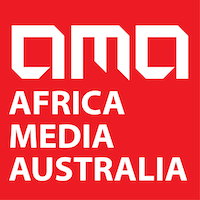A new action plan to improve access to health services for refugees was launched as part of a day-long Refugee Health and Wellbeing Showcase that 200 people attended in Logan today.
Health and Ambulance Services Minister Cameron Dick and former Queenslander of the Year Dr Homa Forotan, who came to Australia from Afghanistan as a teenager and has risen to become an inspirational doctor in the Queensland health system, spoke at the launch of the Refugee Health and Wellbeing: A Policy and Action Plan 2017-2020.
“The health system can be difficult to navigate for people from refugee backgrounds, who may have previously faced limited or no access to health care and may not understand what is now available for them,” Mr Dick said.
“There are seven priority areas for action and 65 activities in the plan, which focus on collaborating across sectors, sharing resources, providing culturally-responsive services, improving access to interpreters and implementing innovative modes of care.
“It also provides practical actions around identified priority areas that will increase access to timely, high-quality and culturally responsive health care services for refugees.
“We want to provide people from refugee backgrounds now calling Queensland home access to the right care, at the right time, in the right place, to ensure they have the best possible health and wellbeing.”
Mr Dick said the new policy and action plan was a key action item for Queensland Health in the Queensland Government’s multicultural policy Our Story, Our Future.
“Queensland Health’s actions in the whole-of-government multicultural policy will help people from culturally and linguistically diverse backgrounds, including refugees, to be active members of our community,” Mr Dick said.
Dr Margaret Kay, a GP and Refugee Clinical Lead at the Mater and St Vincent hospitals, said a positive policy that supported a statewide strategic approach would ensure that refugees had access to the right care at the right time and in the right place.
“For me as a GP, I need access to the vaccines so my patients are protected, I need specialist services that provide culturally responsive care, I need to feel that I am a partner within an integrated system that is delivering quality care to my patients and their families,” Dr Kay said.
“My hope is that a statewide approach will ensure collaboration between refugee communities, primary care providers and specialist services. I think that if we get this right in this space, we will have a strong health system for everyone.”
CNC for Mater Refugee Health Services Meryl Jones said the policy and action plan was a significant milestone for people working in the refugee health sector in Queensland.
“It shows commitment from the State Government to supporting our work, and recognition that what we do at work each day is worthwhile and important,” Ms Jones said.
“It opens up many opportunities for nurses working in refugee health across Queensland to support each other and share ideas and best practice, which we hope will lead to better outcomes for the client group we are so passionate about.”
Access Community Services Ltd CEO Gail Ker said Access was delighted to have been involved in the development of the policythrough the Refugee Health Partnership Advisory Group Queensland.
“By remaining connected at a community level, Access is able to understand the diverse and changing needs of new, current and emerging communities,” she said.
The showcase also included information stalls for refugees, a roundtable workshop about implementing the plan locally, and cultural dance performances.
The Refugee Health and Wellbeing: A Policy and Action Plan 2017-2020 is available at https://www.health.qld.gov.au/

